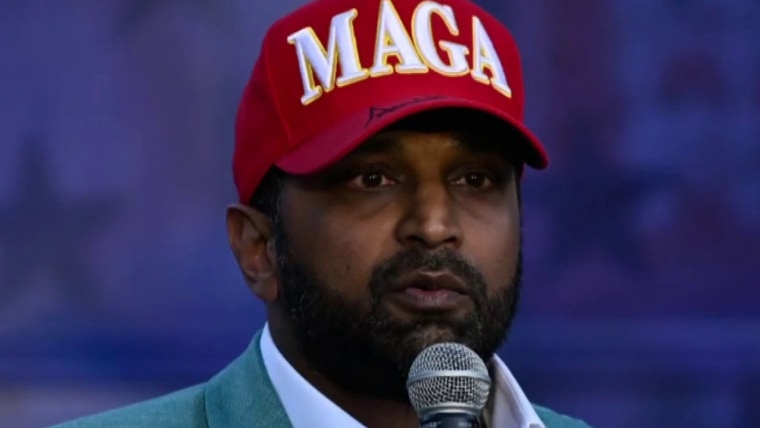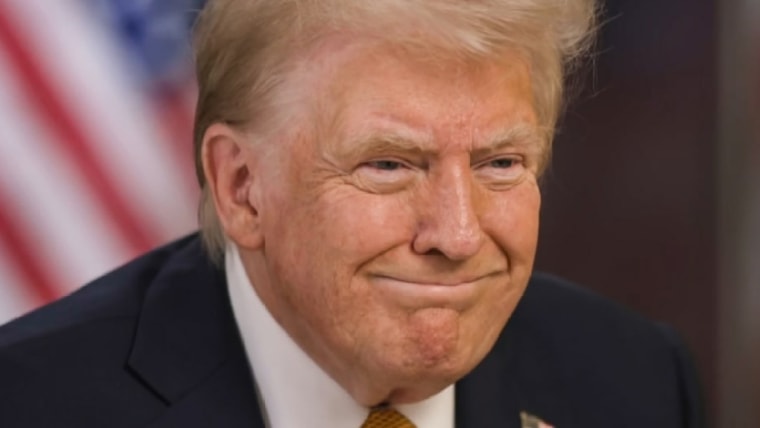Before he even returns to the White House, President-elect Donald Trump is testing the limits of presidential power by playing by his own set of rules. This shouldn’t be a surprise. Time and time again, Trump has managed to move the goalposts for what is and isn’t acceptable in American politics. Let’s start with his plan to buck tradition by installing a loyalist to lead the FBI.
This week, FBI Director Christopher Wray announced he will step down before Trump takes office. Not because his term is over, but because Trump said so. Since Watergate, a 10-year term has been in place for the role, specifically to ensure the FBI director is insulated from presidential politics. This rule makes sense if you care about things like holding our leaders to the same legal standard as everyone else. But that didn’t stop Trump.
Last month, Trump announced he wanted conspiracy theorist Kash Patel to replace Wray. (A reminder: Trump picked Wray to lead the FBI in 2017 after he fired James Comey.) Wray could have stayed until 2027 or forced Trump to fire him if Trump really wanted a change, but he didn’t. One could argue Wray is stepping down to escape Trump’s ire or avoid a messy distraction that would overshadow the bureau’s work. Regardless of his intentions, the move allows Trump to bend the rules without resistance.
Trump and his allies are demanding loyalty from congressional Republicans.
A big question remains: Will the Senate play along, too? Trump and his allies are demanding loyalty from congressional Republicans to ensure Patel and his other controversial Cabinet picks are approved with little pushback. There is a long list of alarming scandals plaguing several of his choices, but we can’t forget one key factor: Many of them are simply not qualified. Picking unqualified individuals to run essential government agencies should be a scandal on its own, but here we are.
The Senate used to be a bulwark against unqualified people leading government agencies. That was a good rule. Trump doesn’t want to play by it. That’s because Trump will use those unqualified people to push through aggressive executive actions, implementing his MAGA agenda for everything from mass deportations and tariffs.

The legislative and judicial branches will play roles in determining how far one politician or one political party can erode institutional guardrails. While it’s unclear where exactly this new line will be, one thing is for sure: It is moving. And the new rules of the game will determine how Washington operates over the next four years.
Guardrails aren’t laws. They are norms that are accepted until someone like Trump doesn’t accept them anymore. Moving forward, the president-elect will break through these guardrails. These attacks on our democracy are certainly not normal, but we must not get lost in debating the “normality” of Trump’s antics.
“Normal” is subjective, and there will be a new firestorm to feed the news cycle every single day. Let’s be intentional in how we respond. Whether it’s “normal or not” won’t win the debate or change how he wields his power. Instead, it will be much more productive to focus on finding the line of what is acceptable or not.
This invisible line of acceptability has shifted throughout American history.
This invisible line of acceptability has shifted throughout American history. As a nation, we enslaved Black people because it benefited certain Americans economically. After the 1941 Pearl Harbor attack, the government sent Japanese Americans away to internment camps. Women didn’t have the right to vote until the 19th Amendment was enacted just a century ago.
Over the course of our country’s history, the line of what is “normal” has moved. Sometimes two steps forward, one step back. As we search for a path forward, it’s important to start asking: Where is the line now? And who gets to draw it in the second Trump era?
In the past, the line has shifted because people worked to move it, then defended its position. The United States of America is the first multiracial democracy ever attempted. We’ve defined ourselves by overcoming the odds. Over the next few years, we must remember: Trump doesn’t have to define us. The very idea of who we are as a nation is being challenged, but the American people have the power to draw the line, reset the rules and emerge stronger.
For more thought-provoking insights from Symone Sanders-Townsend, Michael Steele and Alicia Menendez, watch “The Weekend” every Saturday and Sunday at 8 a.m. ET on MSNBC.

